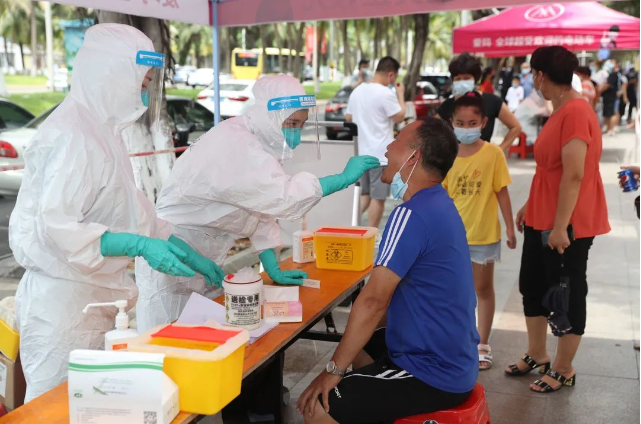China announces optimization of COVID-19 rules
on Nov. 11, China announced new policy regarding COVID-19 quarantine period for international travelers, cancel the circuit breaker for inbound flights and close contacts of confirmed cases.
International travelers will undergo five days of centralized quarantine plus three days of home-based isolation, compared with the current rule of seven days of centralized isolation plus three days spent at home.
It also stipulates that inbound travelers should not be put into isolation again after finishing the required quarantine period at their first points of entry.
The circuit-breaker mechanism, which bans flight routes if inbound international flights carry COVID-19 cases, will be canceled. Inbound travelers will only need to provide one, rather than two, negative nucleic acid testing results taken 48 hours before boarding.
Quarantine periods for close contacts of confirmed infections have also been reduced from 10 to 8 days, while secondary close contacts will no longer be traced.
The notice said that modifying categories of COVID-risk areas is aimed at minimizing the number of people facing travel restrictions.
High-risk areas, it said, will cover residences of infected cases and places where they frequently visit and are at high risk of the virus’s spread. The designation of high-risk areas should be bound to a certain building unit and should not be expanded recklessly. If no new cases are detected for five consecutive days, the high-risk label along with control measures should be lifted promptly.
The notice also requires ramping up stockpiles of COVID-19 drugs and medical equipment, preparing more intensive care unit beds, bolstering booster vaccination rates especially among the elderly and accelerating research of broad-spectrum and multivalent vaccines.
It also vows to heighten crackdown on malpractices such as adopting one-size-fits-all policies or imposing additional curbs, as well as stepping up care for vulnerable groups and stranded groups amid a local outbreak.

